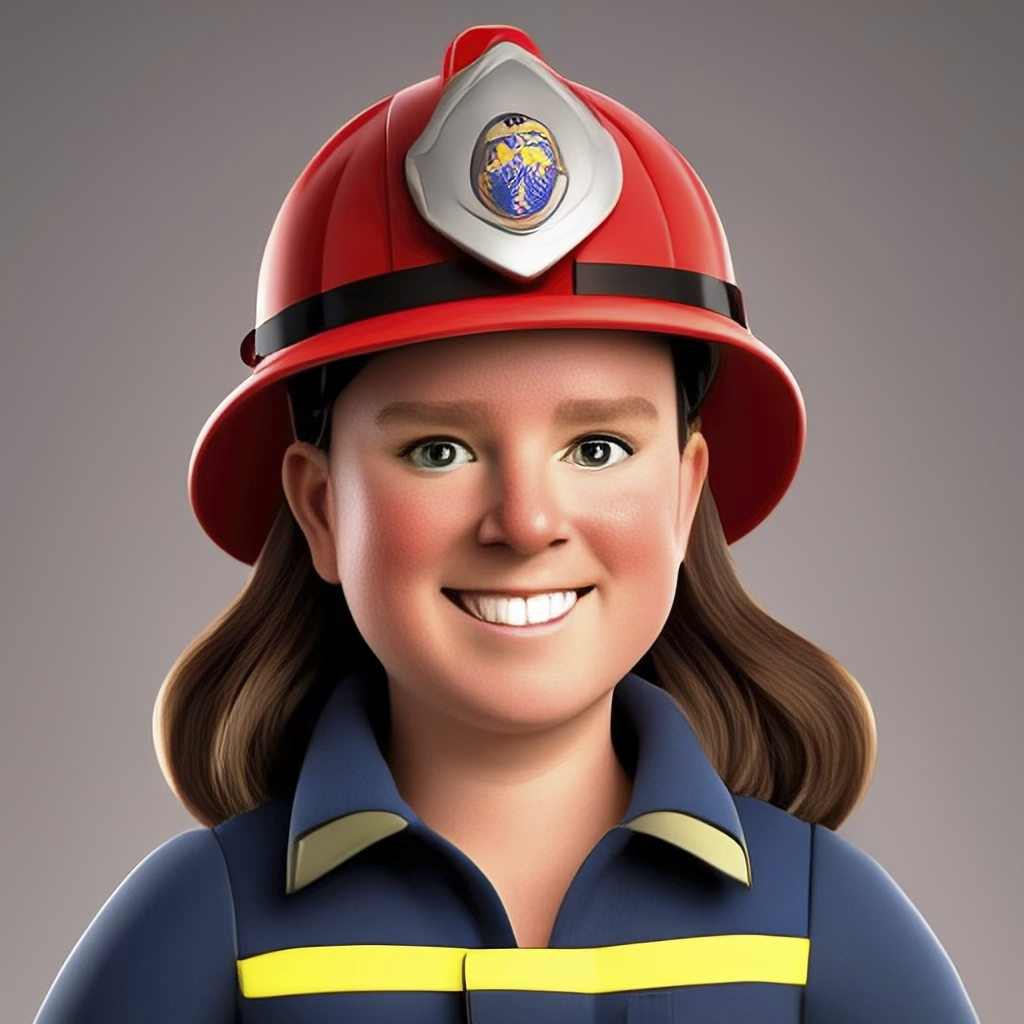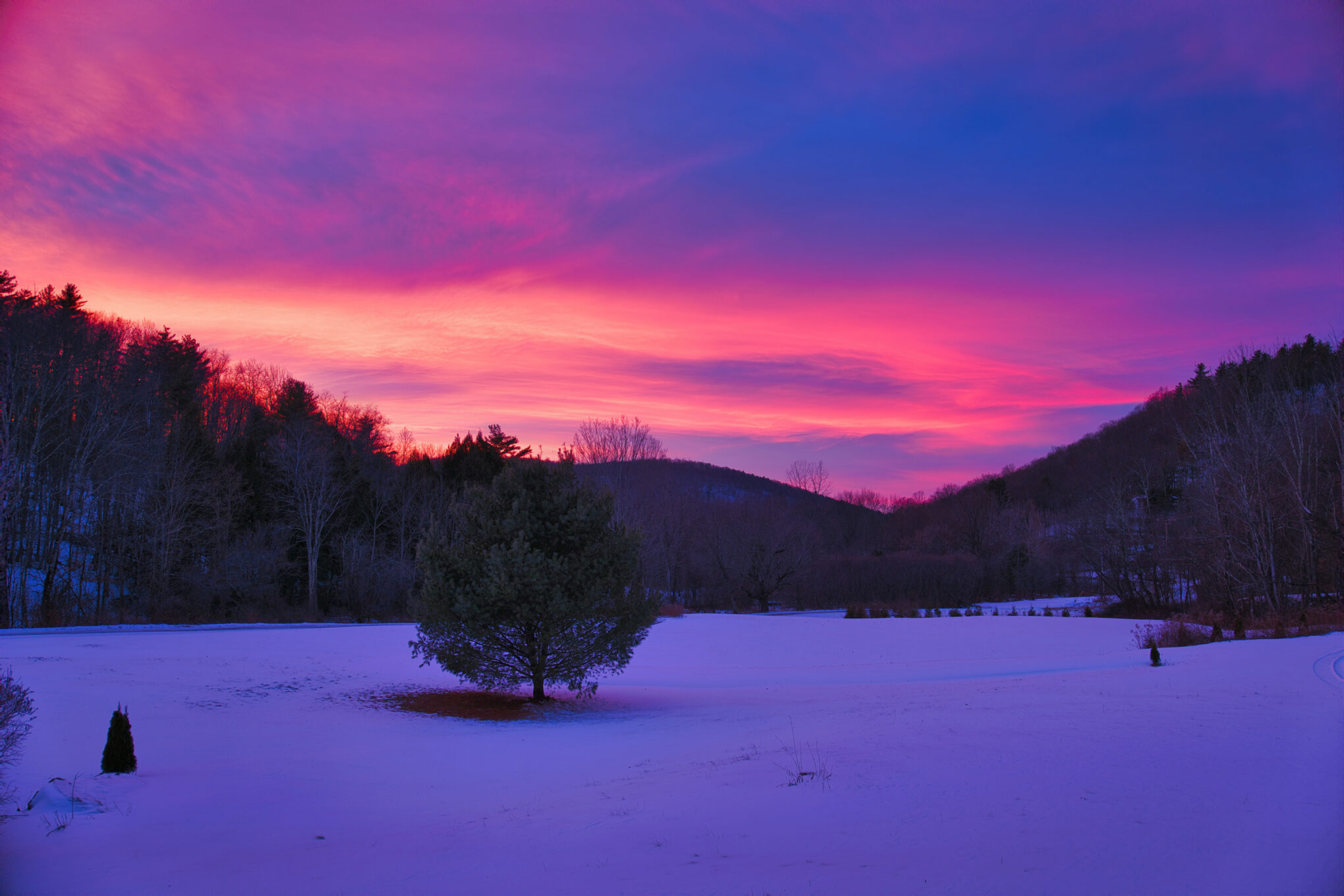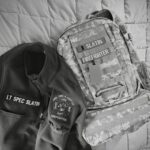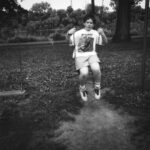There are nights when I step outside into the silvered darkness of my Vermont farm, and the only thing I feel truly seen by is the moon. The world is quiet here—just the chorus of crickets and the distant hoot of an owl—but above me the moon hangs like an old friend. Its pale light touches my face gently, as if to say I know you. In those moments, I allow myself to wonder: What if the moon is the only one who ever really understood me?
I’ve lived a life under many spotlights—harsh fluorescent lights in hospital corridors, the red glow of flashing emergency beacons, the flicker of firelight on my soot-streaked bunker gear—but none ever felt as honest as the moon’s glow. From the very start, I was a riddle to people around me. I was born different, with a body that wrote its own medical rule book. The doctors weren’t sure what to call me; my parents weren’t sure how to raise me. Intersex, hermaphrodite, anomaly—those are their words, not mine. I simply came into this world a girl who didn’t fit neatly on the forms, a truth that unsettled everyone but me.
As a child I looked up at the night sky and felt a strange kinship with that solitary moon. It didn’t fit in either—it glows only through borrowed light from the sun, it changes shape unapologetically, and it circles the world alone. I too was accustomed to being the lone oddity orbiting others’ expectations. Even as my birth certificate declared me a female at birth, there were whispers and stares that tried to convince me I wasn’t real. But in the moon’s silent acceptance, I never felt the need to justify myself. Under that soft light, I was real—whole and understood without a single word.
Misunderstandings have followed me all my life like a shadow I can’t shake. Institutions especially have a way of misreading anyone who colors outside their lines. My family, for one, tried to rewrite my story before I could even hold a pen. There was a legal battle over my name, and identity when I was too young to comprehend it—my own relatives insisting I be someone I’m not. By sixteen I was cast out of the very house I grew up in, all because I dared to love another girl and tell the truth about it. They saw my honesty as rebellion, my identity as threat.
When I drove away into that cold night, duffel bag in hand and tears stinging my eyes, the only witness to my heartbreak was the full moon watching over me over the Adirondacks. I remember looking up through a blur of tears, thinking that at least one thing in the universe wasn’t judging me. The moon just shone, indifferent but present, and somehow that steadied me. I spent that night on a camp bunk with moonlight slanting through the window, promising myself I would never again let anyone tell me who I was. That promise became my armor.
In the years that followed, whenever human beings failed to understand me, I’d find the moon and remind myself that I carry my understanding within, like a secret solace that no one can take.
Autonomy became my north star. At eighteen I left behind the ruins of a family that wouldn’t accept me and leapt straight into the flames—literally. I ran away from boarding school in my senior year, found a job at the local fire department, earned my EMT certification, then my Firefighter certification, and hurled myself into a career on the front lines of chaos. It was an extreme choice by most people’s standards, but for me it felt inevitable. While my high school peers traded college plans and easy comforts, I was pulling on bunker gear and running into burning buildings.
Maybe I had something to prove—to myself, to a world that doubted me from birth—or maybe the fire just called to the fire inside me. I’ve always been drawn to extremes, and absolutes. In rescue, and emergency work, I found a place where my intensity wasn’t just accepted, it was required. Courage over conformity—that was my daily oath. I forged my own path and damn if I didn’t walk it with head held high.
And yet, even amid sirens and adrenaline, there were quiet moments of solitude where I felt profoundly alone. After grueling 24-hour shifts saving lives or, worse, witnessing lives I couldn’t save, I’d often find myself alone behind the station, staring up at the night sky. No matter how turbulent the day had been, the moon would be there, steady and patient. I could be covered in soot and grief, or numb with exhaustion, but the moon never looked away.
I think the hardest part of being misunderstood is that people don’t even realize they’re doing it. The institutions I served—fire departments, EMS, even society at large—saw the decorated Lieutenant-Specialist, the Rescue Girl who never flinched, and assumed I was unbreakable. They praised my strength, but failed to notice the person behind the uniform. Few asked why I was so driven, what pain perhaps fueled my relentless courage. Fewer still understood that strength isn’t a boulder, unmoving and solid; it’s a dam holding back a flood. And my flood was mighty.
I carried the psychological residue of countless traumas, layered one on top of another. Decades of seeing humanity at its worst left cracks in me that I carefully patched over with unprecedented determination, and dark humor. I can still remember the worst night of my career—a double fatality car accident on a lonely road in Upstate New York, bodies and twisted metal illuminated by nothing but spinning lights, and the flood lights of the rescue truck.
I was twenty years old and tasked with tagging the lifeless bodies, under a sky so brutally clear that the moon itself saw everything. In the moment I didn’t falter; I did my job with a steady hand, and a silent prayer for each victim. But afterward, when the wreckage was cleared and I was finally alone… I broke. I stepped away from the others, found a stretch of field bathed in lunar light, took off my helmet, and I screamed at the sky. Not out of anger, but anguish—soundless, hitching sobs that I refused to let anyone else witness.
The moon witnessed it though. It saw the tears mixing with blood on my uniform, and it saw me gather myself again when I was done. I wiped my face, stood up, and went back to being the unflinching rescuer everyone needed me to be. In that moment the moon felt less like a distant rock and more like the only friend who truly saw the depth of what I was carrying.
There have been lovers, too—women who, in their own ways, tried to understand me. But only one ever truly did. I am married to Amelia Phoenix Desertsong, a woman of impossible brilliance, and quiet depth, who never once asked me to explain myself. From the beginning, she saw me—all of me—not as a contradiction to be solved, but as a woman to be honored, and trusted. She is the first transgender person I’ve ever loved, and the only soul who ever made me feel like my body, my mind, and my truth were not just accepted, but sacred.
Ours is a friendship-based marriage—queer in form, in function, and in the way it defies every expectation handed down by straight society. We sleep separately, we live intertwined but untethered, and we love each other in a way that is fierce, complicated, and profoundly gentle. Though we’ve walked through storms and emotional distance and come to the quiet, unflinching understanding that our paths may not always run side by side, we remain committed.
The emotional closeness we share does not require traditional romantic expressions; instead, it’s built on truth, code, and the kind of mutual care that neither time nor separation can diminish. Even when our hearts feel miles apart, even when we go quiet for days or disappear into our own internal worlds, there is a string that connects us—something unspoken, unbreakable. She is my anchor when the world tilts, my sounding board when my mind spins too fast, and the only person I have ever known who can look me in the eye and match my intelligence without blinking.
When I say I have been understood by someone, I mean her. But even then, there are moments—usually late at night, when the farmhouse is still and the air hangs thick with everything we haven’t said—when I find myself looking up at the moon again. Not because she isn’t enough, but because some things in me are older, quieter, and lonelier than words can reach. Amelia knows that. She doesn’t try to fix it. She lets me have my silence, and she never questions my communion with the night sky. That, in itself, is a form of love that requires no explanation.
Now, in this chapter of my life, solitude has become both a close friend and a formidable teacher. I live on my own terms, on this little farm that only grows scenery, with dirt under my nails and autonomy in every breath I take. I spend my days with Amelia, fixing my tractor, laying in the green grass if only to gaze at the night sky, writing when the words come, and photographing the wild beauty around me. My life is modest, and honest. The happiness I’ve cultivated is a fragile kind—it doesn’t erase the loneliness, but rather sits beside it, holding its hand. I’ve learned that you can be both content, and lonely at the same time, and that’s not a tragedy—it’s just part of being human.
I no longer need the whole world to understand me. The young woman who once desperately craved validation has grown into a woman who validates herself. I know who I am: a proud intersex woman, a retired firefighter who has seen the worst and still refused to lose her best, a fiery and passionate storyteller, a lover of women, a fierce friend, and a soul forever reaching toward that moon. I don’t shrink myself anymore—not for family, not for institutions, not for doctors, not for anyone. Truth doesn’t care if it makes people uncomfortable, and neither do I.
So what if, in the end, the moon truly is the only one who ever understood me completely? It’s a sobering thought, but not a devastating one. I’ve come to realize that being understood is not the end-all be-all of existence. Being true to myself matters more. The moon taught me that in its own mute way. Night after night, it showed up for me when others didn’t. It listened when I hurled my pain into the stars. It watched me evolve—from a misunderstood kid curled up on a windowsill, to a determined first responder covered in ash, to a woman standing alone in a pasture with head raised high, unbroken and unapologetic.
The moon has been the backdrop to every version of me. And maybe it’s the only one who witnessed all of those versions and loved them all the same—without question, without demand.
I take one last look at the glowing orb above. A thin veil of clouds crosses its face, but its light only softens; it does not disappear. I smile to myself, feeling that familiar tightness in my chest loosen. I know I could cry right now and no one would see, but I don’t need to. Instead I close my eyes and let the night breeze and moonlight wash over me, cleansing the day’s doubts.
Understanding can be a lonely road, but I am never truly alone on it. I have my resilience, I have my truth, and I have the moon’s silent companionship. Perhaps the moon is the only one who ever really understood me—and perhaps that is enough. In the gentle night, in this life I built with scarred hands and an open heart, I find peace in my solitude. I open my eyes, wipe the stray tear I hadn’t realized fell, and turn back toward the warm glow of my home.
The moon shines on behind me, unwavering, as it always has.
And I carry on, unafraid.










Leave a Reply